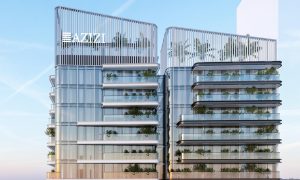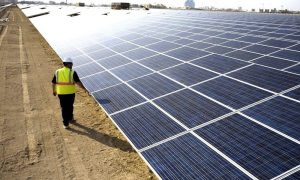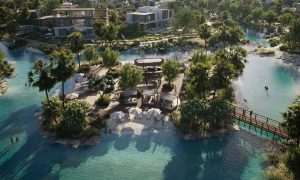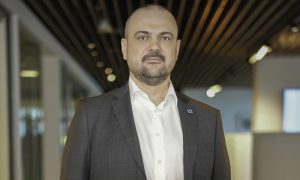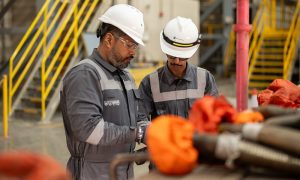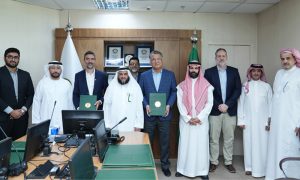MOCCAE, EAD and ENWWF ink deal to scale up Nature-based Solutions in a bid to address climate change
The collective action on Nature-based Solutions will be showcased at COP28 in Dubai next year

A collaboration agreement to scale up Nature-based Solutions (NbS) was signed by H.E. Mariam bint Mohammed Almheiri, UAE Minister of Climate Change and Environment, H.E. Dr. Shaikha Salem Al Dhaheri, Secretary General of the Environment Agency – Abu Dhabi, and Laila Mostafa Abdullatif, Director General of Emirates Nature-WWF at a high level meeting at COP27 in Sharm El-Sheikh, Egypt.
The collaboration between the Ministry of Climate Change and Environment (MOCCAE), Environment Agency – Abu Dhabi (EAD) and Emirates Nature-WWF (ENWWF) is said to demonstrate the UAE’s commitment to scaling up NbS as a key pillar to tackling climate change and nature loss in the lead-up to COP28, which will take place in Dubai next year.
By enhancing and restoring highly productive and valuable coastal ecosystems – including mangroves, saltmarshes and seagrass habitats – partners aim to highlight how working with nature can benefit people, nature and climate and make a significant contribution to the UAE’s Net Zero 2050 Strategy, a statement from the MOCCAE.
In late August 2022, the MOCCAE unveiled a pledge designed to boost the private sector’s contribution to the UAE’s Net Zero by 2050 initiative and, in early September 2022, the MOCCAE introduced the National Air Quality Agenda 2031.

With each COP that passes, the urgency to close the emissions gap in addressing the climate emergency becomes ever greater. COP27 represented a real opportunity to advance dialogue on the nature-climate nexus and the role that NbS can play in supporting climate mitigation and adaptation actions. More and more countries are indeed recognising that nature can play a key role in global climate action strategies, and this is reflected in an increased number of countries including nature in their Nationally Determined Contributions (NDCs) to the United Nations Framework Convention on Climate Change (UNFCCC).
A 2021 WWF report found that countries were increasingly recognising the value of NbS in their efforts to address the climate crisis. Some 92% of the updated NDCs assessed in the study included NbS, the statement elaborated.
“The UAE’s NDC clearly recognises the climate adaptation and mitigation co-benefits of natural ecosystems, particularly blue carbon ecosystems. As part of the overall commitments, it includes the conservation, restoration, and expansion of mangrove habitats. In addition, the emirate of Abu Dhabi is targeting the inclusion of a minimum of 20% marine blue carbon habitats within its protected areas. Our collaboration with EAD and ENWWF emonstrates our dedication to maximising the potential of nature-based solutions. We aim to ensure that our collective efforts are inclusive, transparent, and developed with the needs of local communities in mind, and that their benefits are equally distributed,” explained Almheiri.
In early October 2022, Global Mission launched a $17bn fund to achieve the UN’s 17 Sustainable Development Goals and, later in the month, four cement factories agreed to use alternative fuels following a deal with MOCCAE and Emirates RDF.

The ‘NbS for Climate, Biodiversity & People’ project, funded by HSBC through the global philanthropic fund and established under the global initiative of the Climate Solutions Partnership, led by ENWWF regionally and implemented together with the MOCCAE, EAD, and the International Center for Biosaline Agriculture (ICBA), with the Government of Umm Al Quwain as an implementation partner, is already well underway in the region, the statement pointed out.
“We are very proud to be collaborating with MOCCAE and ENWWF to create a solid NbS proposition that will enhance coastal ecosystem resilience as part of our efforts on climate change mitigation and adaptation, while delivering benefits for the UAE at large. The success of this collective action will be determined by the advance collaboration among private and public sector, civil society and scientists to increase interest and participation in scaling-up NbS. At EAD we have stressed greatly on NbS and we have several programmes of which the most important are the Blue Carbon project launched in 2013 and Abu Dhabi Mangrove Initiative inaugurated in February of this year,” commented Al Dhaheri.
The UAE’s hosting of COP28 indicates an opportunity to demonstrate at-scale action on the ground, and the NbS collaboration is a concrete hands-on solution in conserving blue carbon ecosystems that will support the UAE’s Net Zero 2050 Strategic Initiative, the statement explained.
In early November 2022, Abu Dhabi environment and energy agencies unveiled a 60% clean electricity plan for the emirate by 2035.

Abdullatif remarked, “Our team has been working meticulously on the ground in the UAE to implement NbS that will conserve, restore, and promote resilient coastal ecosystems which deliver multiple socio-economic benefits; such as climate mitigation and adaptation, food security and sustainable social and economic development. The work has already begun in two highly valuable coastal seascape sites that were selected following a robust evaluation and evidence-based process, informed by scientific data and local ecological knowledge. By bringing more partners on board to drive forward quality NbS projects in the region, we look forward to showcasing positive nature and climate outcomes, while enabling conditions and creating new opportunities that can attract blended financing and public-private participation towards effective design and implementation of NbS in the lead up to COP28.”
COP28 is expected to be significant as it will provide a platform to present the results of the first global stocktake of national commitments, which in 2023 will assess the collective progress on mitigation, adaptation, and means of implementation of the Paris Agreement.
As the host of COP28, the UAE will continue building on its climate ambition towards 2023 and beyond and will reflect the voices of all relevant stakeholders to achieve global consensus for practical climate progress, the statement concluded.
